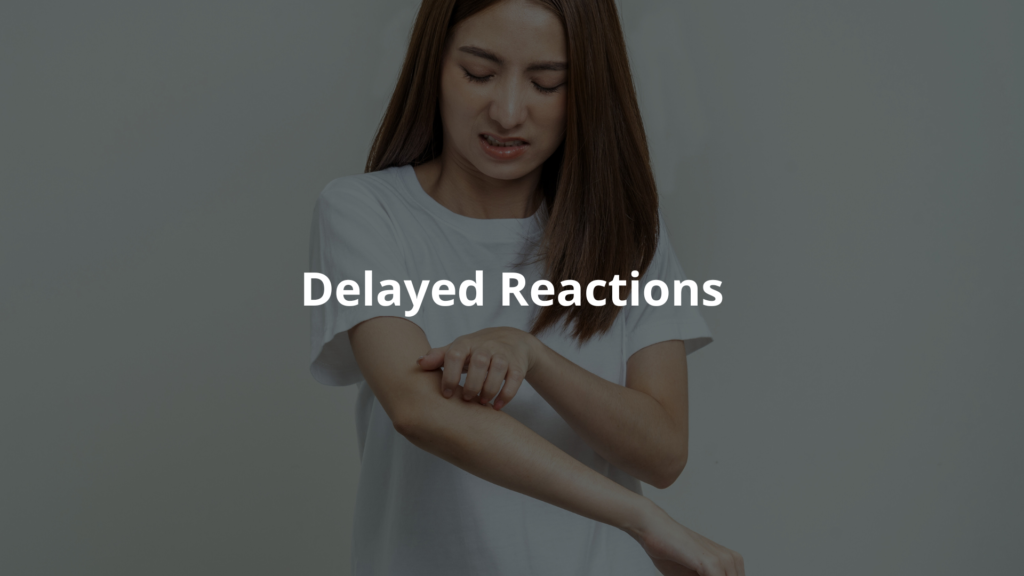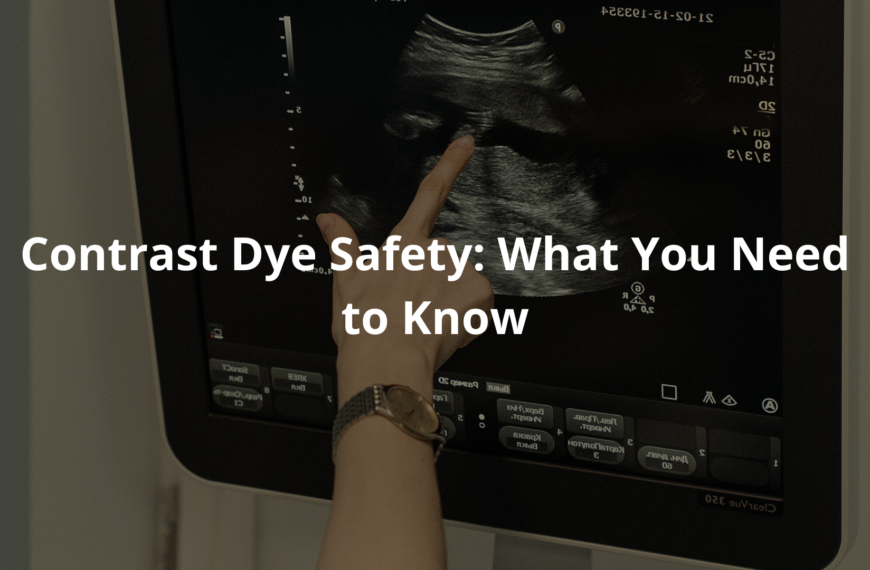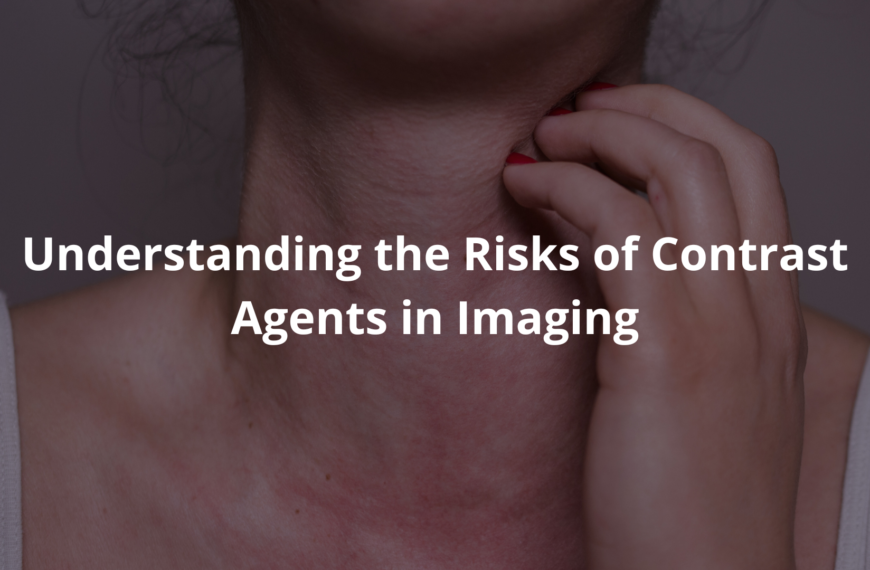Learn about contrast-related side effects and how to manage them safely during medical procedures.
Seeing someone scared during a medical scan, well, it makes you think. Contrast agents, they help doctors see things clearer. But there are risks.
These “contrast-related side effects” can range from mild itching, that’s not too bad, to rare but serious allergic reactions, very bad indeed. Kidney problems are another concern, especially for those who already have issues.
The side effects matter because, well, your health matters. Knowing the risks allows you to chat with your doctor, ask the right questions, and make informed choices, you see? Gotta know what you are putting into your body. Have you got questions? Keep reading.
Key Takeaway
- Contrast-related side effects can happen after medical imaging.
- They can be mild or pretty serious, so it’s good to know what to watch for.
- There are ways to prevent and manage these reactions safely.
Types of Contrast-Related Side Effects
Hypersensitivity Reactions
Hypersensitivity reactions are like allergies, something can cause your body to react in a strange way, and they can happen when you are dealing with iodinated contrast media or gadolinium-based contrast agents. Fancy names, yes. They are for the stuff they inject during scans. And when there is a hypersensitivity reaction, it might not be so good.
Mild reactions: Studies show that less than 3% of people might get skin rashes. Skin rashes can be itchy. Flushing; that’s when your face gets hot. Nausea. Pretty annoying. These are not too dangerous. [1]
Moderate to severe reactions: Rare, less than 0.04%. But, they can include serious stuff. Trouble breathing. Dyspnea. That’s scary. Swelling of the face or throat. Edema. Also really scary. Fast or slow heartbeats. Tachycardia or bradycardia. And, you need to know these can be really scary.
- Be aware of allergy-like reactions.
- Understand the different levels of severity, and which are more dangerous.
- Serious reactions are rare, but knowing the signs is important.
Renal Adverse Events
Let’s focus on the kidneys for a moment. Important organs, they really are. Some people, especially those with kidney problems, already, and others who take medicine called metformin, a very common medicine. Might have a condition. This is not so good. Contrast-induced acute kidney injury. CI-AKI. A term.
And it’s important to stop taking metformin, maybe give it a rest. At least 48 hours after getting contrast media. Doctors are very careful. Imagine that, because doctors check your kidney function before you take it again. Make sure everything is alright and safe. Which is really all you can ask for, it might be.
- CI AKI is not good for kidney
- Stop Metformin usage
- Doctor checks for kidney function and it is important to note that. [2]
Delayed Reactions

You might get contrast, think everything’s fine. Not necessarily. Sometimes, you don’t feel anything until later. These delayed reactions can happen from 1 hour. Up to 12 hours later. They are usually mild, but can be a bother. Like that itch you can’t quite reach. They may not hurt you but they bother you.
These delayed reactions are sneaky, not immediate. Important to keep an eye on things. Important to see if any side effect occurs and cause any reactions, it is something to remember.
- Delayed reactions can occur.
- These can happen up to 12 hours later.
- Most are usually mild.
Management of Contrast-Related Side Effects
Serious reaction, not a fun time. But doctors have steps to help. Good thing, too. They know what to do. They do. Or, they should.
- Positioning the patient: They might lay the person down flat. Because it can make breathing easier.
- Airway protection: The most important. They need to make sure the person can breathe, sometimes they need to give them oxygen.
- Medication: If it gets worse. The worst possible situation. A shot of epinephrine. Adrenaline. To help fast. To save them and that is important.
For breathing trouble, they might give medicine to open those airways. Which, again, is important.
- Doctors lay a person down.
- Doctors give oxygen.
- Doctors give medication.
Prevention and Patient Education
Credits: How Radiology Works
To help keep safe, some things can be done. To ensure that you are healthy and safe. Doctors will find out if you’re at risk. Especially if you’ve had reactions before. That’s a big red flag! Or if you have kidney issues. This is not something to ignore.
And the doctors should teach you about what to expect. What symptoms to watch for after the contrast is given. Important to know. And to be aware. Because if you are not, then there can be trouble. There is a good chance for that, and Imagine that it is not what you want.
Giving written information can help. Especially for people who might have problems, kidney issues. Makes sense.
- Doctors must check for risk.
- Doctors must educate.
- Doctors must give information.
FAQ
What are the main types of contrast media and their potential side effects?
Iodinated contrast media and gadolinium-based contrast agents can cause various reactions. Some patients might experience hypersensitivity reactions ranging from mild symptoms like itching and flushing to more serious conditions such as anaphylaxis. Allergic-like and physiologic reactions can occur during imaging procedures, making it crucial to understand potential risks before medical imaging.
How do contrast media affect kidney function?
Contrast-induced nephropathy and contrast-induced acute kidney injury are significant concerns for patients with renal impairment. Risk assessment before imaging is critical. Some patients might experience changes in kidney function, especially those with pre-existing conditions. Understanding osmolality and the differences between ionic and non-ionic contrast can help healthcare providers minimise potential kidney-related complications.
What respiratory and cardiovascular reactions can occur with contrast media?
Patients might experience challenging reactions including bronchospasm, contrast-induced pulmonary oedema, and various cardiovascular events like hypotension, bradycardia, tachycardia, and arrhythmias. These physiological responses can range from mild discomfort to more serious conditions requiring immediate medical attention.
What are the common immediate and delayed side effects of contrast media?
Patients may experience immediate symptoms such as nausea, vomiting, headache, and dizziness. Delayed reactions can include skin responses like urticaria and angioedema. Some individuals might also develop thyroid dysfunction or experience contrast-induced neurovascular complications.
How can healthcare providers manage potential contrast media reactions?
Premedication protocols and contrast safety guidelines are essential. Risk assessment before administration helps identify patients more likely to experience adverse events. Proper contrast administration protocols, understanding reaction severity scales, and having management strategies in place can significantly reduce potential complications.
Are there special considerations for specific patient groups?
Contrast media present unique challenges for certain patients. Pregnancy risks, drug interactions, and individual health conditions require careful evaluation. Patients with existing medical issues might need alternative imaging methods or special precautions to minimise potential adverse events.
What steps can patients take to reduce contrast media risks?
Patients should disclose their full medical history, including previous allergic reactions and kidney function. Following healthcare provider instructions, staying hydrated, and understanding potential side effects can help mitigate risks. Patient education is crucial in ensuring safe contrast media usage.
Conclusion
Contrast, yes, it can have side effects during medical imaging with contrast agents. Being aware and learning about it is important. It can help lower the risks for patients. Having a procedure? Then ask questions! It is not a bad thing to ask about what’s going to happen. Because that way you are prepared. Stay informed, and you will be healthy and happy.
References
- https://pmc.ncbi.nlm.nih.gov/articles/PMC4034507/
- https://www.eviq.org.au/clinical-resources/radiation-oncology/contrast-administration/4299-contrast-media-renal-adverse-events




